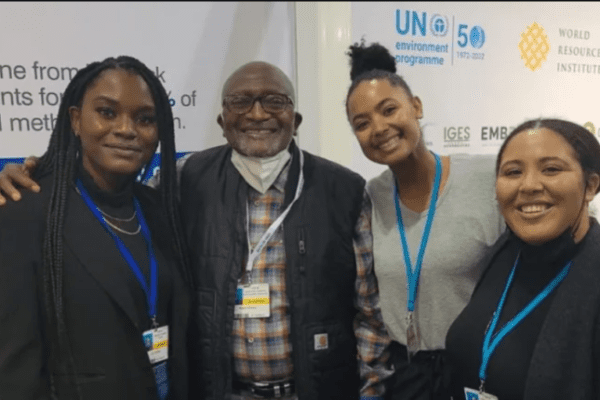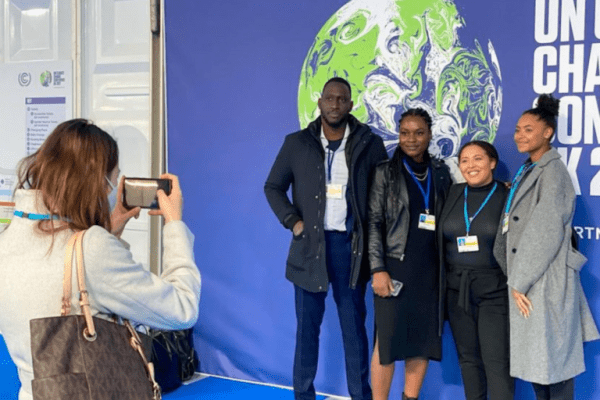Our Results
What have we done?
Over the years, our programs have birthed research projects around environmental issues. We have embarked on successful training programs, raised awareness and empowered racialized communities.

2021 - 2022
Raising Awareness in Communities
In 2022, BE Initiative is focused on building in-person face-to-face connections to set the stage for the launch of our direct services programs in communities.
Thanks to a grant from Chamandy Foundation we were able to hire our first paid staff, Fatoumata Kane, who will help us develop our community connections. With support from our volunteers, we also started being more active on Youtube where you can view updates from our most recent events.
Watch the recordings of the most recent events.
Solidifying and Expanding Our Training Programs
Since 2021, BE Initiative started two types of training initiatives:
1) Anti-racism and decolonisation training in the environmental sector
2) Green construction training
In 2022, we are expanding our decolonization trainings to all sectors and we are developing a green jobs and green entrepreneurship training program for all sectors relevant to the green economy.
Media
2020 - 2021
Raising Awareness in the Media and in the Social and Environmental Sectors
Highlights from 2020 to 2021 include a strong presence in the media to raise awareness about environmental justice issues. We also participated in a lot of conferences and webinars to raise awareness about environmental racism and the lack of diversity, equity and inclusion in the environmental sector.
List of public outreach outputs.
Training and Giving Opportunities to the Next Generation of Environmental Justice Leaders
In the second year, we focused on recruiting additional youth volunteers, providing them with numerous chances to showcase their talents and launch their own initiatives.
Furthermore, BE Initiative received a generous $45,000 donation from Nature Canada, which we promptly transferred to CCECJ. With these funds, we initiated a new internship program within the coalition, known as the Youth Environmental Justice Leads program.
We selected three youth from the black community and afforded them the invaluable opportunity to attend COP 26 in Scotland. Here, we provided them with training in environmental communications and offered ongoing mentorship. Following this, we placed them in two partner organizations: Climate Action Network and the Coalition for Black Trade Unionists. At COP 26, we facilitated connections with some of our American partners, including the esteemed Dr. Bullard, widely recognized as the father of environmental justice.
Upon their return from COP 26, we further honed the interns’ environmental communication skills by linking them with media opportunities. As a result, they established their own platforms and garnered attention from the media.
All three interns achieved remarkable success, securing extensions of their internships with the hosting organizations. Some were even offered full-time positions. They also attained notable professional milestones, including acceptance into fellowship programs at Ryerson University and other esteemed programs in Washington DC.
Finally, two of our inaugural cohort of interns launched their own environmental justice initiative, aptly named Black Eco Bloom. To learn more about Black Eco Bloom, please visit:
While this program was implemented under the CCECJ brand, BE Initiative initiated, designed and coordinated most of the program in collaboration with our partners.
Media
2019 - 2020
The Canadian Coalition for Environmental and Climate Justice (CCECJ)
Highlights from our first year of operation include the launch of a collaborative project with the ENRICH project of Dr. Ingrid Waldron.
We started together a coalition that was initially called the National Anti-Environmental Racism Coalition and that was later re-branded to the Canadian Coalition for Environmental and Climate Justice (CCECJ), a coalition that is now a distinct organization.
CCECJ was created out of our common passion for environmental justice and our desire to energize the environmental justice movement in Canada. In its first year, CCECJ was able to mobilize individuals, academics, community members and key environmental and social groups in Canada (like the David Suzuki Foundation, Environmental Defense and more) around a common agenda for the environmental protection of Indigenous and racialized communities.
One of CCECJ key outcome was a quite successful campaign including a petition that collected over 12,000 signatures for the passing of the first environmental justice bill in Canada.
You can learn more about CCECJ by visiting www.ccecj.ca
Media
Let us work together to make a difference
Join our team and impact the lives of communities affected by environmental issues.



